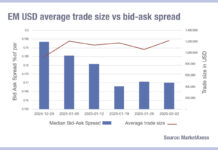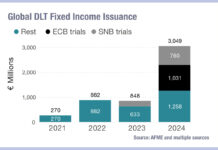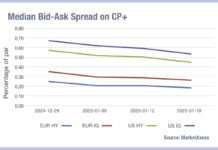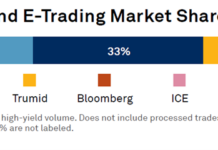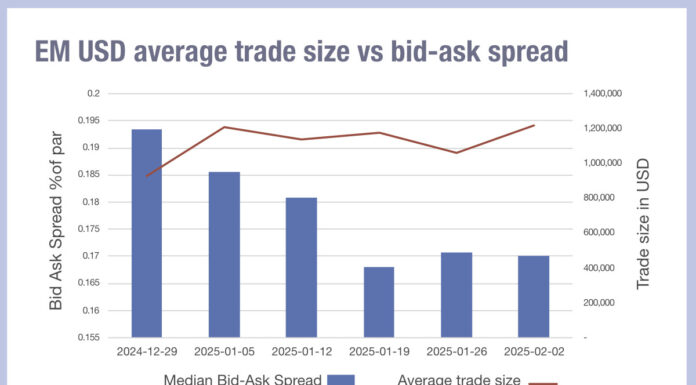
Union Investment has decided to impose an immediate ban on the purchase of all securities of the Russian state and a number of Russian issuers close to the state.
“Regulators have already closed the primary market to most Russian issuers,” wrote Christian Kopf, head of fixed income and FX at the firm, in a statement. “Union Investment is going one step further by banning secondary market purchases of securities issued by the Russian Federation and by private companies with close link to the state. This ban applies to all mutual funds and segregated accounts managed by Union Investment, and not only to ESG themed investment funds. The focus is on “new money” limitations. Union Investment does not want to participate in financing, either directly or indirectly, a war of aggression that violates international law. Further due diligence on Russian issuers is underway.”
Union Investment says that Russian exports and the proceeds of state-related companies represent “an important pillar of the aggression, as they serve to finance the offensive”.
While Russian government bonds have been excluded from its ESG mutual funds for some time, and investments in Belarusian government bonds have long been excluded for all public funds. The firm has also decided on an immediate purchase ban on all securities of the Russian state and the sanctioned Russian companies for our retail funds and all other actively managed mandates. The ban covers the primary and secondary markets and applies until further notice.
“With this measure, we prevent the funds we manage from being misused as a source of financing for the war in Ukraine,” the firm said in a a statement on its website. “In a next step, we will review all Russian issuers close to the state. We want to use this to quantify the connection and, if applicable, the share of companies in the financing or participation in the Russian military action and – if necessary – expand the purchase ban. Depending on the result of the check, it is also possible that our exclusion signals will be tightened. We continue to monitor the political and regulatory debates in Germany and Europe very closely. There has recently been a lot of movement here, both in terms of security and energy policy. This results in a new political and strategic situation within Europe.
“Due to the dynamics of the events and the general uncertainty, no further measures can be derived for us at the moment,” it continued. “We therefore see no reason to adjust our ESG position in the fields of security and energy policy. We will make western companies’ business in Russia the subject of our ongoing company dialogues. Initial talks on this matter have already taken place. Because against the background of the current war events and the resulting sanctions against Russian private individuals and companies, business activities in Russia are exposed to considerable risks. In individual cases, it must be examined to what extent non-sanctioned business activities can serve to finance the Russian war of aggression. This test is already underway and will be continued continuously and intensively.”
©Markets Media Europe, 2022
TOP OF PAGE

